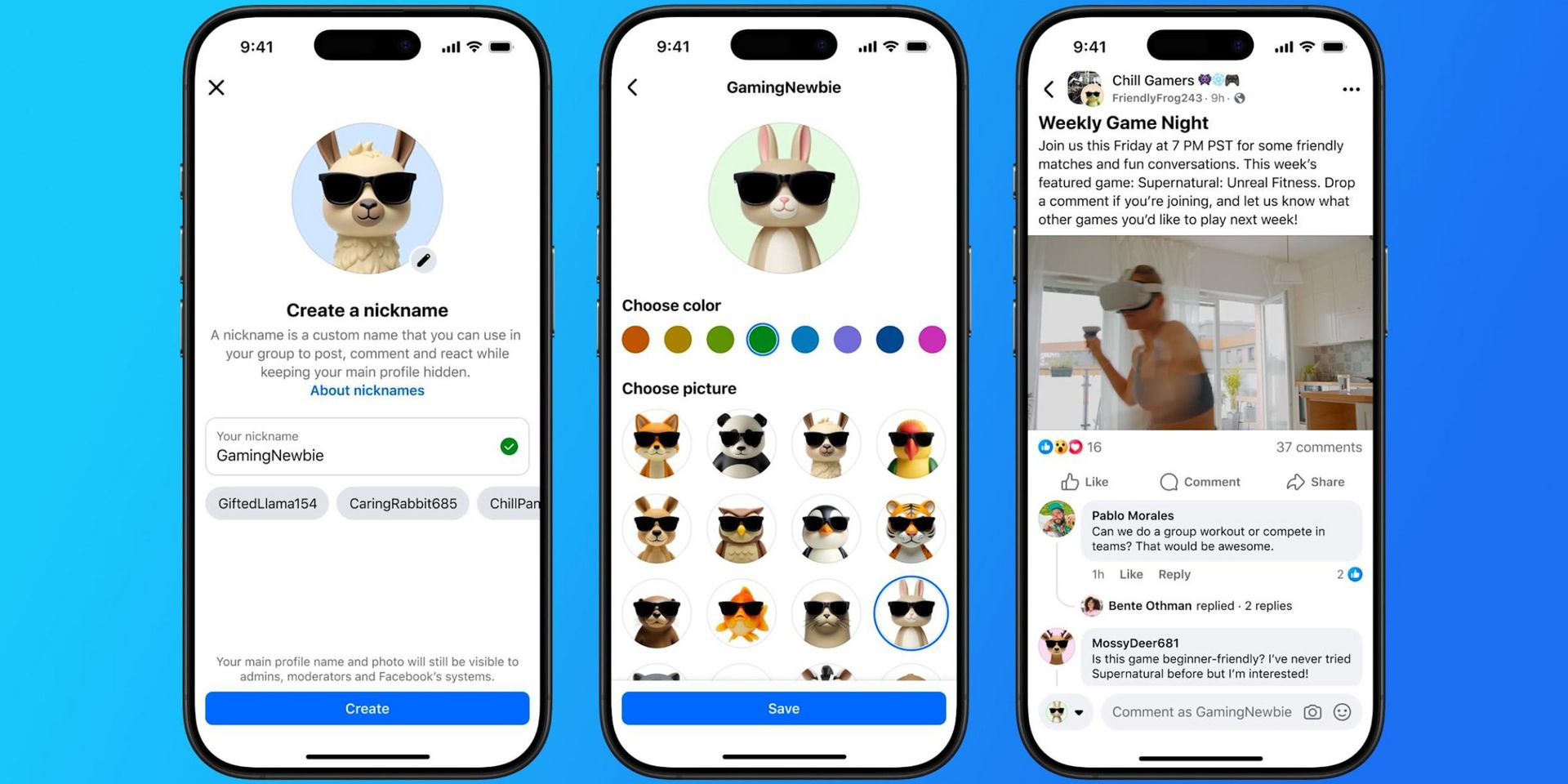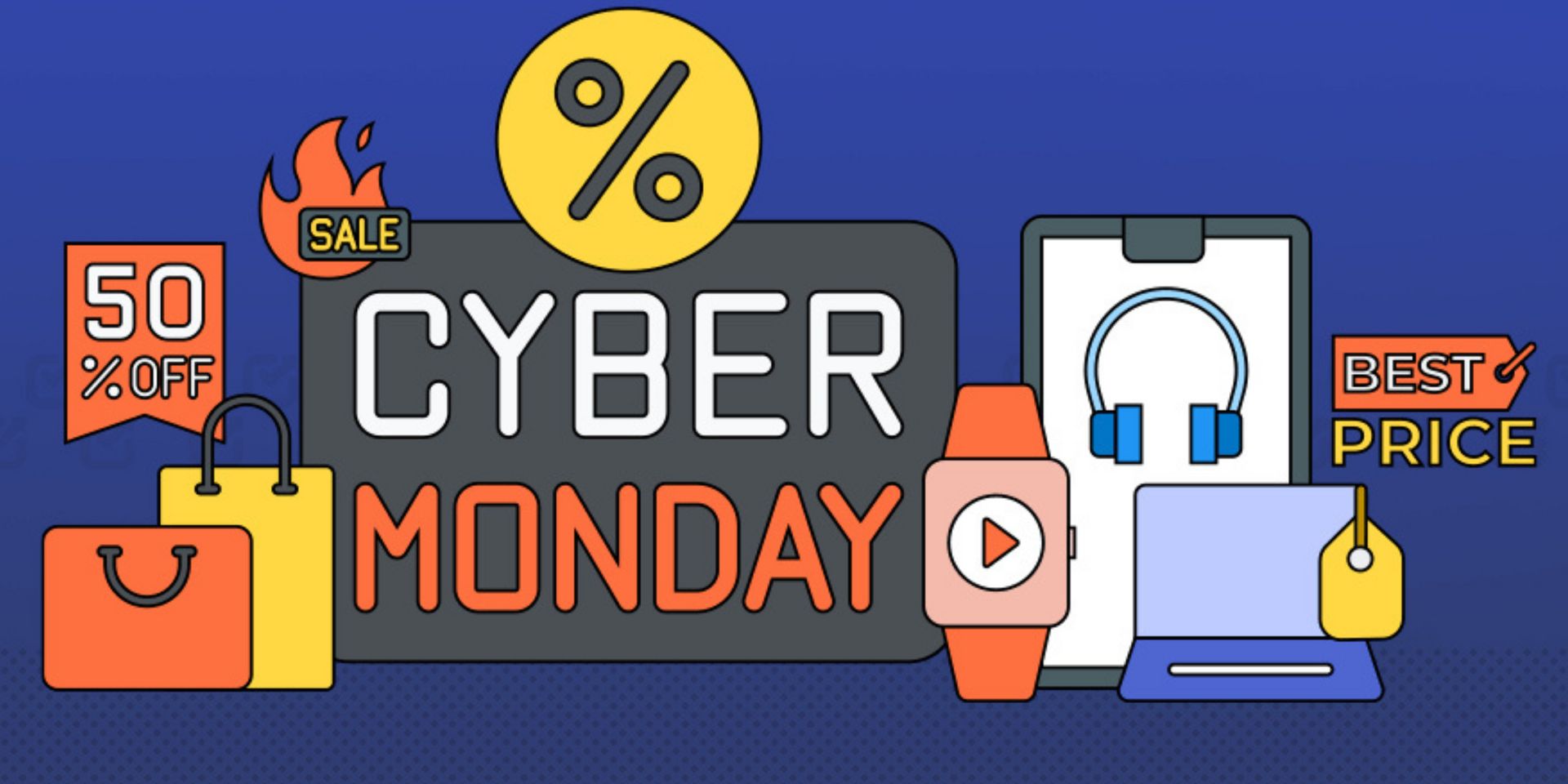
Monday is already packed with shifts you can’t afford to miss!
Measurement is getting rewritten as MMM, and incrementality is surging back into the spotlight. Creators are quietly becoming the most reliable lever for Cyber Monday conversions, and SEO is entering a new era where “optimizing pages” matters far less than orchestrating clarity across your entire organization. And that’s just the start; there’s a lot more in today’s issue worth diving into…
📱 Social Media Marketing

Meta
Facebook groups now allow members to post using custom nicknames and avatars. The feature, controlled by group admins, allows users to switch between their real identity and a nickname, provided it follows Meta’s Community Standards. The update adds to Meta’s broader effort to revive Groups with features like local events tabs, new admin tools, and easier transitions to public groups. Why it matters (POV): This is Meta trying to remove the friction that stops people from posting. More psychological safety = more engagement = more time spent in Groups, which remain one of Facebook’s most active surfaces.
WhatsApp upgrades its old “About” feature, now turning it into a visible, Instagram-Notes-style status for your profile. Users can post short updates that appear as a bubble on their profile image in chats, control who sees it, and choose whether it disappears after a day or lasts longer. Why it matters (POV): Meta wants WhatsApp to feel more expressive and social, not just functional. With Instagram Notes gaining traction among younger users, WhatsApp is clearly trying to replicate some of that lightweight social stickiness.
💰 Performance Marketing

Magnolia CMS
Many companies have tested GenAI, but almost none see real revenue gains. That gap is pushing SEO leaders into a new role: GEO (generative engine optimization). Not because they’re AI experts, but because SEO has always been about empathy and alignment, understanding platform incentives, user needs, and internal friction. As LLMs reshape discovery, the real work is orchestrating clarity across Product, PR, Comms, Sales, and Data so generative engines see a consistent story. It’s less about keywords and more about unifying how the company describes itself everywhere users might encounter it. Why it matters (POV): GEO is quickly becoming an enterprise priority, and SEO teams are best positioned to lead it if they move beyond traffic metrics and focus on cross-team alignment and clarity.
Branded desktop searches saw position 1 lose clickshare while positions 2–6 gained, suggesting users are exploring more results on brand SERPs. Commercial and local queries also weakened at the top as richer SERP modules crowd the page. Shorter desktop searches lost position-1 CTR, while longer 4-word+ queries stayed stable. Across industries, Arts & Entertainment saw the biggest drop at the top, Travel gained lower on the page, and Shopping redistributed clicks from position 1 to positions 2–3. Top-spot dominance is softening in several contexts. Why it matters (POV): If your rankings stay flat but traffic dips, CTR shifts could be the reason. Brand, commercial, and short-query desktop searches remain the most vulnerable to quarter-over-quarter fluctuations, while longer queries and some verticals are holding steadier.
This is based on AI Shopping features from Google. (1) You can track prices on specific product variations and get alerts when the cost drops, with agentic checkout completing the purchase via Google Pay. (2) AI Mode in Search and the Gemini app can generate gift ideas from a simple prompt about someone’s interests or vibe, powered by Google’s 50B+ product listings. (3) “Let Google call” helps with local shopping by having Gemini contact nearby stores to confirm stock for items not listed online. (4) Virtual try-on lets you preview holiday outfits on a photo of yourself before buying. Why it matters (POV): Google is using AI to remove the biggest holiday shopping pain points, finding real deals, getting better gift suggestions, confirming local stock, and making decisions faster.
🤝 Influencer Marketing

Social Champ
Creators cut through chaos with contextual content that mirrors how people actually shop: mobile-first, value-driven, and reliant on social proof. With 71% of brands increasing creator spend this year, the format aligns perfectly with buyer behavior. (1) Limited-time creator codes inject urgency through someone shoppers already trust. (2) Creator-led flash sales, especially via stories, TikTok, or livestreams, turning deals into micro-events. (3) Product comparisons and “best buys” help overwhelmed shoppers make fast decisions. (4) Creator email or SMS features add credibility to the most crowded channels. (5) Creator-curated Cyber Monday carts remove choice overload by offering ready-made picks. Why it matters (POV): Cyber Monday shoppers want shortcuts, not more ads. Creators act as the decision layer buyers rely on, and brands that use them well consistently outperform across mobile and social.
⚡ Trend & Update

Lifehacker
Pew Research’s 2025 social media report shows Reddit as one of the biggest winners of the year, now used by 26% of U.S. adults and surpassing Snapchat to become the 6th most-used platform. YouTube remains on top at 84% and Facebook holds 71%, with both platforms strengthened by heavy adoption among Americans aged 65+. Instagram sits at 50%, while TikTok jumped to 37%, the largest year-over-year increase. Why it matters (POV): If you want reach + spending power, the platforms winning with older Americans, especially YouTube and Facebook, are still unmatched.
🎯 Strategy

LCN
Nearly half of U.S. marketers plan to invest more in MMM (Marketing Mix Modeling), and it’s now viewed as the most reliable methodology. Incrementality testing is also rising, with over 52% already using experiments, though accuracy concerns, limited tools, and operational complexity remain major barriers. Meanwhile, Google’s reversal on third-party cookies hasn’t slowed the shift away from dependency. Only 5% of organizations aren’t exploring alternatives, and first-party data has become the centerpiece of targeting accuracy. At the same time, agentic AI is entering measurement workflows: Google’s Gemini-powered Analytics Advisor and Amazon’s new AI tools are designed to surface insights, anomalies, and full-funnel performance in real time. Why it matters (POV): Measurement is splintering into three tracks: MMM, incrementality, and AI-driven insight tools. Marketers who master all three will have a clearer story on what’s actually driving performance in a post-cookie, multi-channel world.
🗣️ Your Opinion Matters
How did today’s edition work for you?
— Sam C.